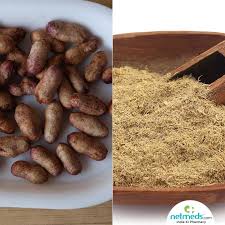Achieving optimal health and vitality is a goal for many, but the path to it often feels elusive. Ayurveda, the ancient Indian system of holistic healing, offers time-tested wisdom to support long-lasting health and well-being. By focusing on balance, Ayurveda emphasizes the connection between body, mind, and spirit, guiding individuals toward a healthier, more vibrant life. Whether you’re looking to boost your energy levels, enhance your immune system, or achieve mental clarity, Ayurveda’s approach to wellness can help you unlock your full potential.
Long Description:
Ayurveda, which translates to “the science of life,” is an ancient system of medicine that has been practiced for over 5,000 years. Rooted in the understanding of balance, Ayurveda teaches that health arises when the body, mind, and spirit are in harmony. The goal of Ayurvedic practice is not only to cure illness but also to promote overall vitality and prevent disease by focusing on lifestyle changes, natural remedies, and self-awareness.
1. Ayurveda and Vitality:
Vitality is the foundation of good health, and Ayurveda addresses this by promoting practices that encourage energy flow and nourish the body. Ayurveda’s understanding of vitality goes beyond simply feeling energetic; it encompasses a holistic approach to sustaining and enhancing life force (Prana) in the body.
Balance of Doshas: Ayurveda believes that everyone has a unique constitution, known as their dosha (Vata, Pitta, Kapha). Each dosha governs different physical and mental functions, and imbalance in the doshas can lead to physical and mental health issues. Ayurveda’s personalized approach helps restore dosha balance, which is key for optimal vitality.
Diet and Nutrition: Ayurveda places great emphasis on eating fresh, natural foods that nourish the body according to the individual’s dosha. A balanced diet promotes digestion and absorption, helping to build strength, improve energy levels, and ensure vitality. Specific Ayurvedic herbs and foods, such as turmeric, ghee, ginger, and whole grains, provide essential nutrients that enhance overall vitality.
Daily Routine (Dinacharya): Ayurveda encourages a structured daily routine that aligns with the body's natural rhythms. Waking up early, eating regular meals, exercising, and practicing self-care rituals all contribute to the body’s overall energy levels and vitality. Following this routine not only enhances vitality but also reduces stress and promotes emotional well-being.
2. Ayurveda’s Role in Achieving Optimal Health:
Ayurveda doesn’t just treat symptoms—it seeks to understand the root causes of imbalance in the body. By restoring balance in the physical, mental, and spiritual realms, Ayurveda helps individuals achieve long-term health.
Digestive Health: Ayurveda emphasizes the importance of digestion, as it is considered the foundation of health. Proper digestion ensures the absorption of nutrients, which is crucial for maintaining energy levels and vitality. Ayurvedic herbs like triphala and aloe vera are often used to support healthy digestion and detoxify the body.
Detoxification: Ayurveda promotes periodic cleansing to remove toxins (ama) that accumulate in the body over time. Detoxification not only supports digestion but also rejuvenates the body, helping you feel lighter, more energetic, and mentally clear. Ayurvedic detox practices, such as Panchakarma, are designed to cleanse and restore balance.
Herbal Remedies for Vitality: Ayurvedic herbs play a vital role in boosting health and vitality. Popular herbs such as Ashwagandha, Brahmi, and Tulsi (holy basil) are known for their adaptogenic properties, which help combat stress and improve energy levels. These herbs also support the immune system, promote mental clarity, and aid in recovery from illness.
3. Enhancing Mental Health and Emotional Well-Being:
Mental health is deeply connected to physical health, and Ayurveda recognizes the importance of emotional well-being in achieving vitality. Ayurveda’s holistic approach to mental health involves practices that reduce stress, anxiety, and mental fatigue, while also promoting clarity and focus.
Meditation and Mindfulness: Ayurveda emphasizes meditation as a tool for calming the mind and enhancing emotional resilience. Regular meditation helps reduce anxiety, depression, and stress, leading to a clearer, more balanced state of mind.
Yoga and Breathing Techniques: Yoga is an essential practice in Ayurveda that integrates body movements, breath control, and meditation. Through pranayama (breathing techniques) and asanas (yoga postures), Ayurveda helps balance the nervous system and enhance mental and emotional health.
Herbal Supplements for Mental Clarity: Herbs such as Brahmi, Ashwagandha, and Jatamansi are known for their ability to calm the mind, improve focus, and support emotional well-being. These herbs help reduce stress and anxiety, enhancing mental clarity and promoting emotional stability.
4. Ayurveda for Longevity:
Ayurveda is not just about improving current health, but also about promoting longevity. Through daily practices, mindful living, and using natural remedies, Ayurveda supports a long and healthy life.
Lifestyle Adjustments: Simple changes in daily habits—such as getting enough sleep, staying hydrated, and practicing stress-relieving activities—can significantly enhance overall health and vitality. Ayurveda encourages taking proactive steps to prevent illness and promote long-term wellness.
Balanced Sleep: Ayurveda stresses the importance of good sleep hygiene. Proper rest is essential for both physical and mental health. Ayurvedic practices such as avoiding stimulants, following a bedtime routine, and ensuring proper sleep environment help in achieving deep, restorative sleep, which is critical for vitality.













